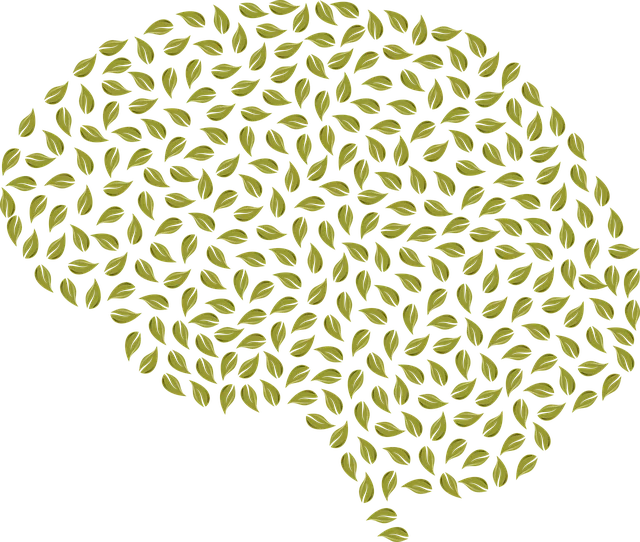Resilience Building at KP MHAC Greenwood Village: RFM Strategies for Positive Outcomes
The Kaiser Permanente Mental Health Access Center in Greenwood Village employs a unique RFM (Reach,…….
Welcome to an in-depth exploration of the Kaiser Permanente Mental Health Access Center located in Greenwood Village, a pioneering hub for mental healthcare services. This article aims to unravel the multifaceted aspects of this center, its impact on local and global communities, and its potential for shaping the future of mental health care. By delving into various facets, we will uncover how this access center serves as a cornerstone in addressing the critical need for accessible and comprehensive mental well-being support.
The Kaiser Permanente Mental Health Access Center in Greenwood Village is a specialized healthcare facility designed to provide integrated, accessible, and affordable mental health services to a diverse range of individuals and families. It operates as a key component of the Kaiser Permanente healthcare system, known for its comprehensive medical care model. The center offers a wide array of services, including outpatient therapy, psychiatric evaluation, medication management, crisis intervention, and support groups.
Established in 2015, the access center has its roots in Kaiser Permanente’s commitment to addressing mental health disparities. It was created as part of a strategic initiative to improve accessibility and reduce stigma associated with mental healthcare services. The center aims to serve as a one-stop shop for individuals seeking various mental health support options under one roof.
In terms of significance, the access center plays a pivotal role in several aspects:
The Kaiser Permanente Mental Health Access Center aligns with global trends in healthcare, emphasizing the importance of preventive care and integrating behavioral health services into primary care settings. This approach is supported by numerous studies highlighting the benefits of early intervention and continuous care for improving mental health outcomes. Within the United States, the center contributes to a growing network of similar access points, aiming to make mental healthcare more accessible and less stigmatized.
The model developed at the Greenwood Village access center has garnered international recognition and interest. Kaiser Permanente’s approach to integrating mental health services into primary care settings has been cited as a best practice by various global health organizations. This model has inspired similar initiatives in several countries, contributing to the global movement towards more comprehensive and accessible mental healthcare systems.
Several key trends have influenced the development and trajectory of this access center:
Different regions around the globe are adopting variations of the Kaiser Permanente model, each tailored to local healthcare systems and cultural contexts:
The economic landscape surrounding mental health services is dynamic and complex. The Kaiser Permanente access center operates within a market characterized by:
Investment in mental health infrastructure, including access centers, follows several patterns:
Economically, the center has several impacts:
Technological advancements have played a transformative role in shaping the operations and impact of the Kaiser Permanente Mental Health Access Center:
These technological innovations have had a profound effect on service delivery:
Looking ahead, technology offers several opportunities for further enhancement:
The operation of the Kaiser Permanente Mental Health Access Center is guided by a web of policies and regulations that vary across regions:
These policies and frameworks significantly influence the center’s development and operations:
Despite its successes, the Kaiser Permanente Mental Health Access Center faces several challenges:
To address these challenges, several strategies can be employed:
In a bustling urban setting, the access center launched an initiative targeting adolescents aged 13-18. Through partnerships with local schools and youth centers, they offered drop-in therapy sessions, peer support groups, and educational workshops on mental health literacy. The program resulted in increased awareness, improved school attendance, and reduced rates of self-harm among participants.
In a rural community with limited access to specialized care, the center established a telemedicine link with a network of mental health professionals. This enabled individuals to receive therapy sessions from the comfort of their homes, addressing isolation and transportation barriers. The program was particularly successful in engaging older adults who were previously reluctant to seek help.
In a culturally diverse region, the access center incorporated traditional healing practices into its services. By collaborating with local cultural leaders and incorporating indigenous therapeutic methods, they improved engagement and treatment outcomes among minority populations. This approach demonstrated the importance of cultural sensitivity in delivering effective mental health care.
Looking ahead, several areas present significant growth opportunities for the Kaiser Permanente Mental Health Access Center:
Emerging trends shaping the future of mental health care include:
To capitalize on these trends, the center should:
The Kaiser Permanente Mental Health Access Center in Greenwood Village stands as a testament to the power of innovative healthcare solutions. By integrating mental health services into primary care settings, it has set a precedent for accessible and comprehensive mental well-being support. Through global influence, technological advancements, and strategic partnerships, this center continues to evolve, addressing mental health disparities and contributing to improved outcomes. As the field of mental healthcare navigates emerging trends and challenges, centers like this will play a pivotal role in shaping a more inclusive and resilient mental health landscape.
Q: How does the access center ensure cultural sensitivity in its services?
A: The center prioritizes cultural sensitivity by employing diverse staff, offering language services, and incorporating traditional healing practices where appropriate. They also conduct cultural competence training for all healthcare providers.
Q: Are mental health services at the access center covered by insurance?
A: Yes, the center accepts most major insurance plans. However, coverage details may vary, so patients are encouraged to confirm their specific benefits and co-pays.
Q: Can individuals without insurance access these services?
A: The center works closely with community resources to support those without insurance. Sliding fee scales and charity care options may be available based on individual financial need.
Q: How does technology enhance therapy sessions at the access center?
A: Technology, such as telehealth platforms, allows individuals to receive therapy remotely, especially beneficial for rural or homebound patients. Digital health records streamline information sharing between providers, ensuring continuity of care.
Q: What resources are available for family members supporting someone with a mental health condition?
A: The center offers support groups and educational workshops specifically designed for family caregivers. These programs provide guidance, coping strategies, and valuable peer support.

The Kaiser Permanente Mental Health Access Center in Greenwood Village employs a unique RFM (Reach,…….

The Kaiser Permanente Mental Health Access Center in Greenwood Village promotes understanding indivi…….